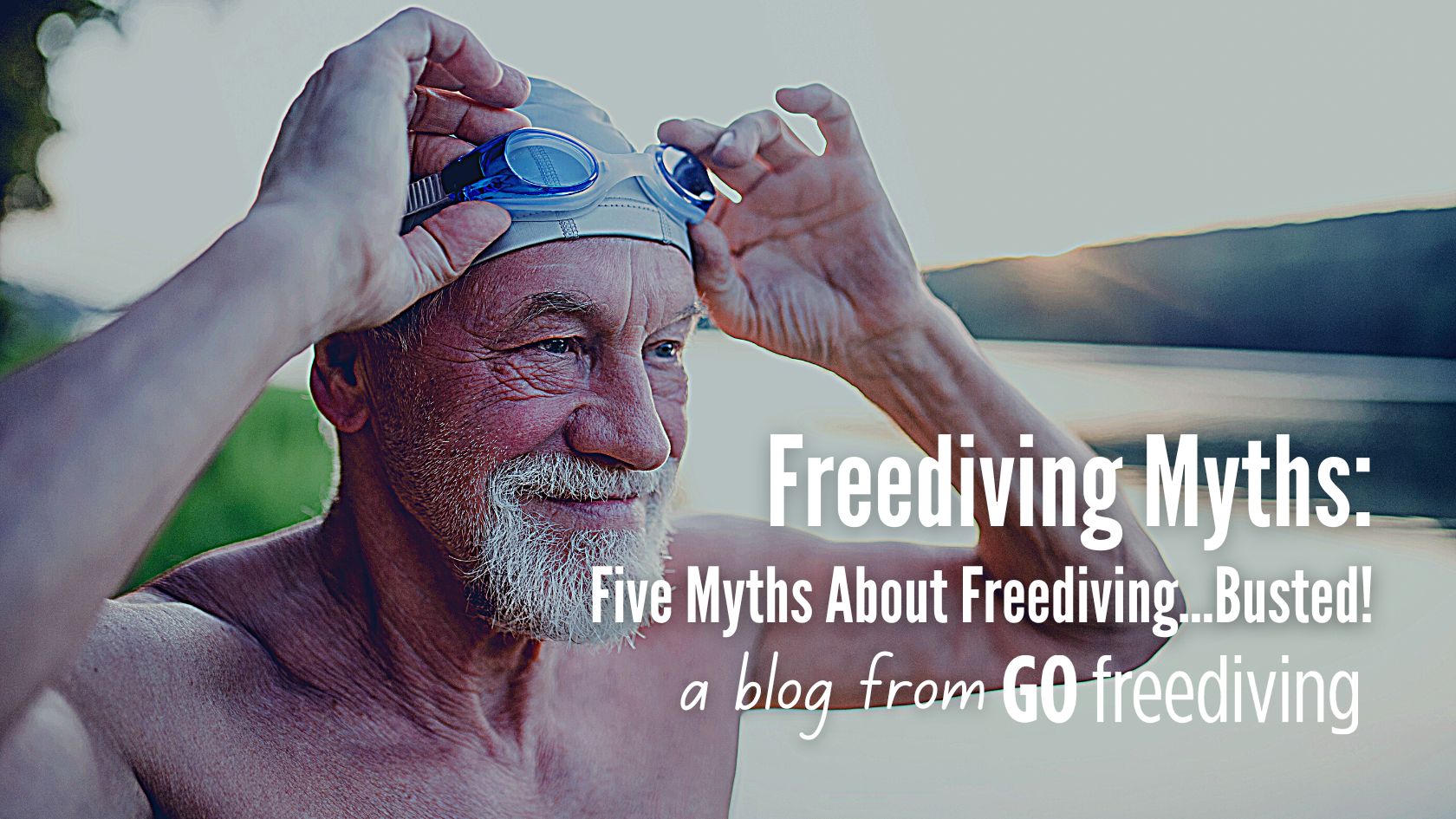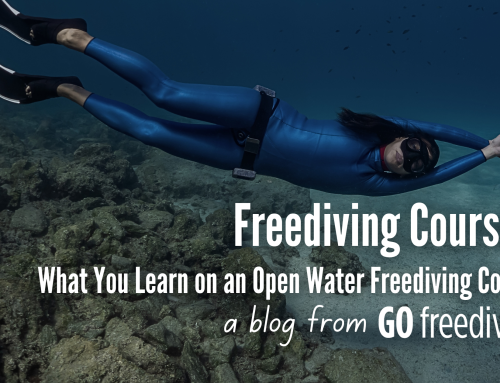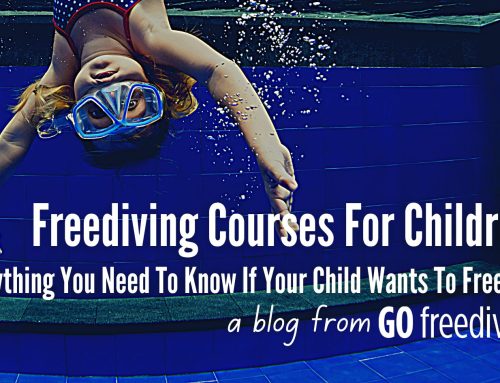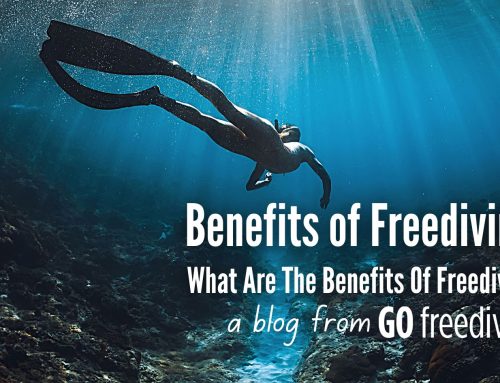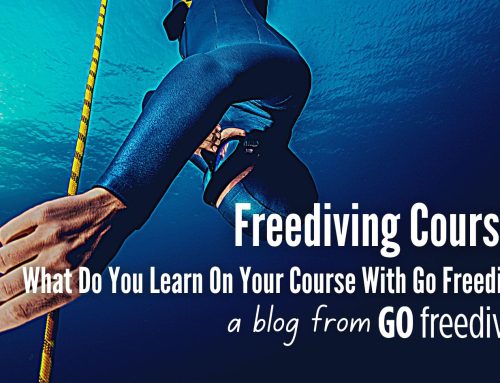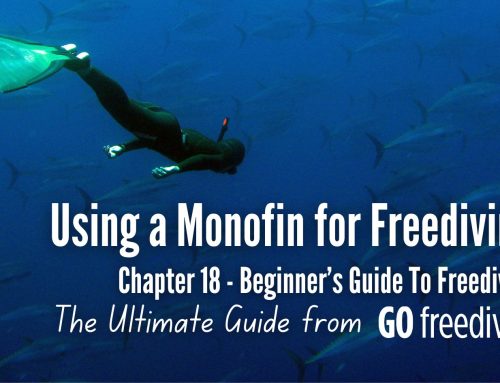When people find out I am a freediver, they first ask me how long I can hold my breath, and then how deep I can dive. After they have expressed shock and have shaken their heads, they usually say ‘I could never do that’ and proceed to recite a number of complete myths about freediving. I then have to make a detailed rebuttal of their beliefs, and explain that ANYONE could achieve what I have.
Here are 5 myths I am busting right now, so you can show your friends, family and co-workers and hopefully inspire them to follow in your freediving footsteps. And if you’re not yet a freediver and believe these myths, prepare to have your mind blown…
#1 – You need to be young to freedive
I’ve taught people in their eighties and I taught one man at the SETT tank in his mid eighties who was a complete fish, blowing all the other students out of the water with his ease, grace, and ability. Annabel Briseno started freediving in her fifties and broke three female world records. In her fifties, Natalia Molchanova held EVERY female world record (9) apart from the one for No Limits which she never tried to break, and Bill Graham from Hawaii is in his seventies and a 70m constant weight freediver, as well as former US static record holder with a 7 minute and 39 second breath hold…
And closer to home, just check out our very own David Mellor who is in his late fifties and on the UK freediving team, 2018 freediver of the year and is currently swanning around the world competing internationally!
You are never too old to learn to freedive and excel at the sport…
#2 – You need to be super-human and muscly to be a successful freediver
Let’s talk about the ancient Greek freediving legend Georgios Haggi Statti. In 1913 he repeatedly freedived to 77 m to search for the anchor lost by the Italian ship La Regina Margherita. As well as descending to that depth several times, he had time to find the anchor and tie a rope to it, so it could be retrieved.
So was Haggi Statti a Greek god? Well he was small, weak, half deaf through repeated perforations of his eardrums, had chronic pulmonary emphysema, and was a heavy smoker. Whilst being fit can certainly help your freediving, it isn’t a given that muscles will make you good.
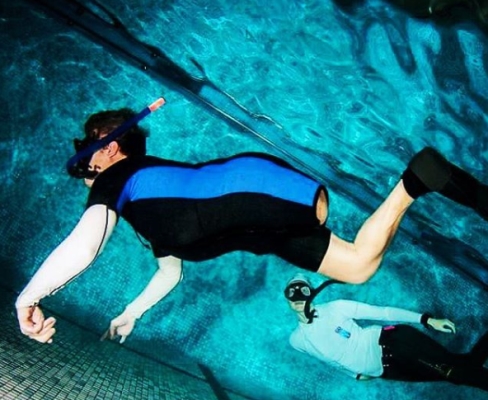
me teaching a group of divability students
In fact, we had one trip to the red sea with a student (who we shall call student X) who was a highly decorated member of the special forces. He has muscles on top of muscles and was a real life James Bond. Also on the trip we had a student who was, erm, the opposite of student X. We shall refer to her as student Y.
Student X was terrified of sharks and water in general despite having an iron will and being determined to be the best at everything he put his mind and body to. Student Y was at ease in the water and followed all our instructions. Needless to say, student Y dived far deeper and for far longer on the trip than student X, despite being the physical opposite.
What makes you a good freediver is what goes on between your ears, not the physicality you were born with or acquired over your life.
#3 – You need big lungs to be a freediver
‘Oh, you’re a freediver! You must have enormous lungs!’ is what I am used to hearing from people when I tell them I freedive. I too, used to believe that I needed big lungs to freedive, and that the more freediving I did, the bigger my lungs would get. This is yet again a monster myth about freediving.
First up, you can’t make your lungs bigger. You can’t improve on what you were born with. You can however learn to use your lungs more efficiently. A few years ago I did an HSE diving medical. Before one of the tests, my lung volume was estimated at 3.5 litres. I blew into a machine and the machine then told the doctor that in fact I had a 4.1 litre lung capacity. For the next test, the machine was programmed with the ‘fact’ that I had a 4.1 litre lung capacity, and based on the results of the next test, I was told I had chronic asthma…
Now I have never had asthma at any point in my life, but the reason I had skewed the test was that I was so efficient at using my 3.5 litre lung capacity that the machine believed I had a much bigger lung capacity. The upshot was that I then had to go to my GP and repeat all the tests after using Ventolin, just to prove I don’t have asthma.
By repeated freediving and stretching exercises, it is easy to reduce your residual volume, and by extension increase your vital capacity – the amount of air you can breathe in and out. Your total lung capacity hasn’t changed but the amount you can ‘use’ has.
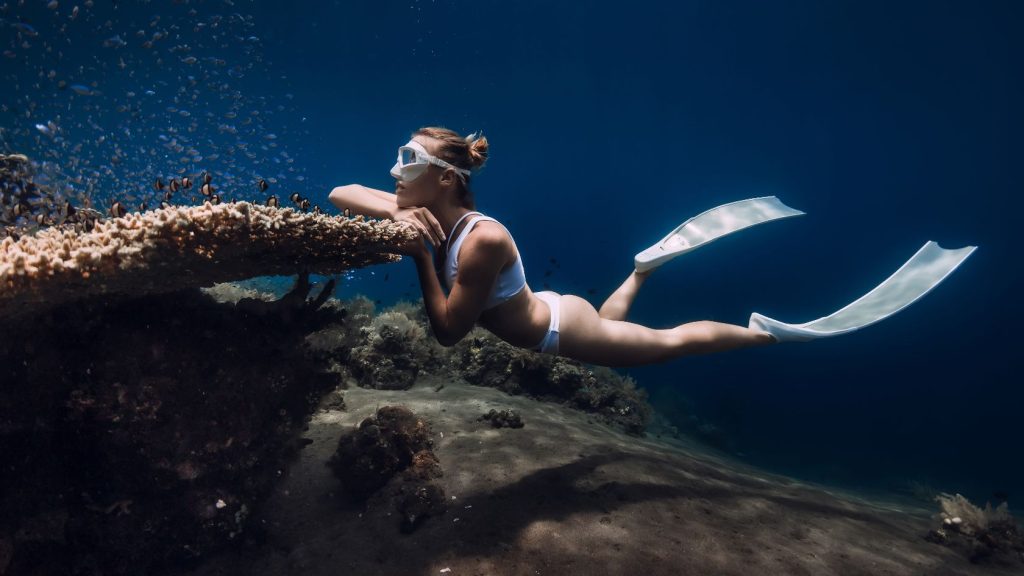
#4 – you need to be able to hold your breath a long time to freedive.
Most freedives last around a minute. With correct technique and relaxation, most freedivers find this easy to achieve. However, a minute under the water can seem a lot longer than a minute on land. This is because a freedive is such an intense experience.
I like to think of freediving like extreme meditation. On a freedive, the very act of holding your breath focuses the mind like nothing else. You are entering an entirely new world, weightlessly moving around as if in flying in a dream. Time takes on a new meaning and becomes elongated. Some of the most memorable freedives in my life are remembered as epic and long events, even though they may only have been around a minute long.
I’ve written about this extensively in my book, ‘One Breath, A Reflection on Freediving.’ And highly recommend you read it if you’re interested more in this aspect of freediving.
Suffice to say, you don’t need to hold your breath for a long time to freedive to have incredible experiences freediving.
#5 – you need to hyperventilate to freedive
This idea was popularised by the iconic freediving film The Big Blue, the idea that you need a special breathing technique to prepare for a freedive.
People often believe that in order to hold your breath, you somehow need to ‘top up’ your body with oxygen. This is a complete myth, as even sick people in hospital will have blood oxygen saturation of 97% or higher. I often have people ask me what breathing techniques I use to ‘oxygenate’ my body, and I then have to explain that when I freedive my oxygen saturation levels are exactly the same as they are when I am talking to them.
In fact hyperventilation robs your body of oxygen and is extremely dangerous. You can read more about the dangers of hyperventilation here.
So there we have my top five myths about freediving… BUSTED!
Learn to freedive with Go Freediving
Go Freediving is the longest established, most experienced and friendliest freediving course provider in the UK, led by world class freediving instructor trainer Emma Farrell, and her team of personally trained instructors. No other course provider has such a good instructor to student ratio, safety record and personal touch.
Whether you’re a beginner dipping your toes into the world of freediving, a seasoned pro looking to turn professional, or simply a freediver of any level who wants the best freediving holiday in the world, we’re here for you!
Want more from Go Freediving?
Scroll to the bottom of our webpage where you can sign up to our newsletter, find the dates for all upcoming trips and courses, read even more blogs, or connect with us on social media!
See you in the water!
